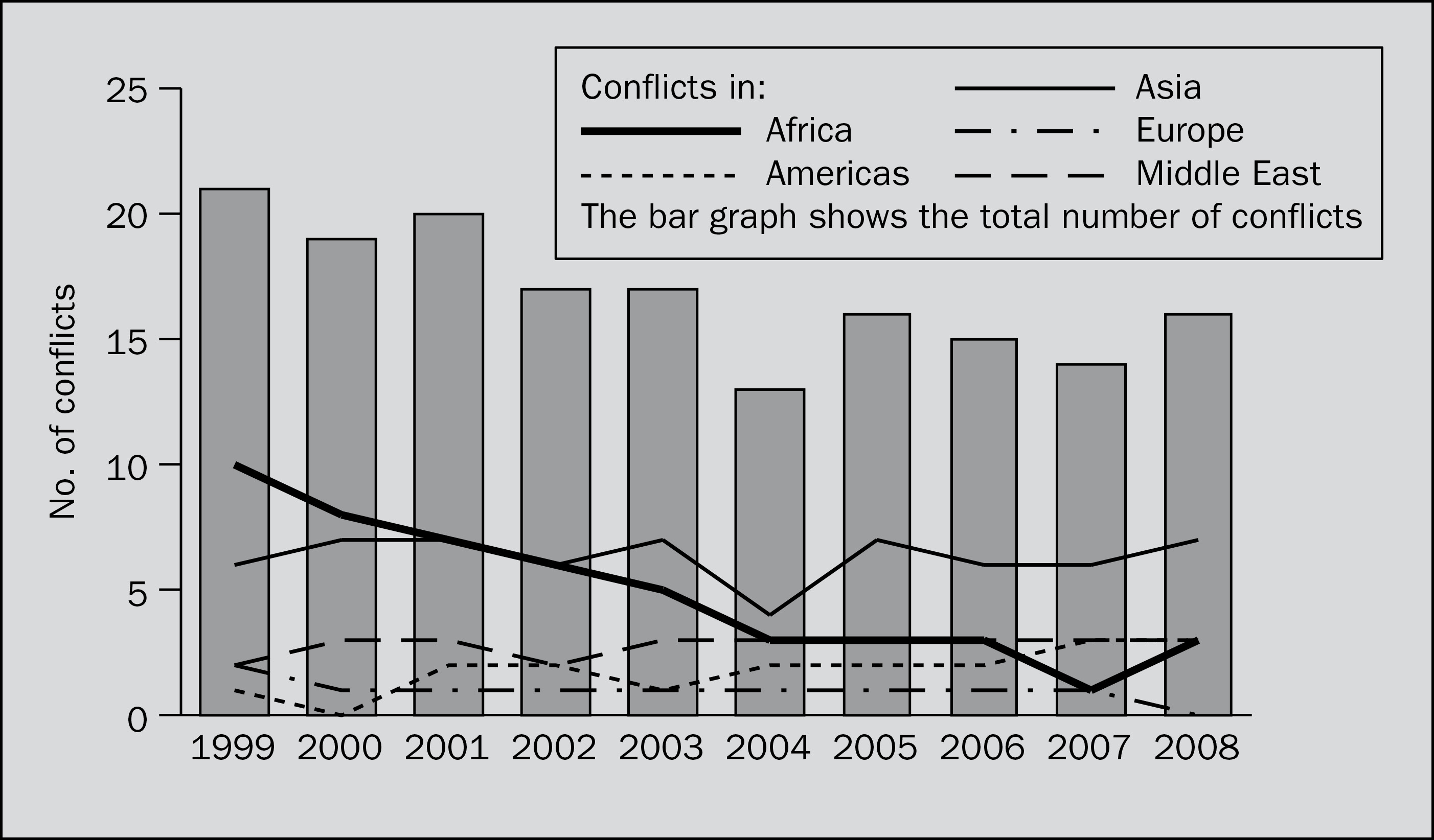Appendix 2A. Patterns of major armed conflicts, 1999–2008
I. Introduction
II. Global patterns in major armed conflicts
III. Regional patterns in major armed conflicts
IV. Changes in the table of conflicts for 2008
V. One-sided violence
VI. Definitions, sources and methods
Figure 2A.1. Regional distribution and total number of major armed conflicts, 1999–2008
Table 2A.1. Regional distribution, number and type of major armed conflict, 1999–2008
Table 2A.2. Regional distribution of locations with at least one major armed conflict, 1999–2008
Table 2A.3. Major armed conflicts in 2008
Summary
In 2008, 16 major armed conflicts were active in 15 locations around the world, 2 more than in 2007.
| Conflict location | |
|---|---|
| Africa | Burundi‡ |
| Somalia↓ | |
| Sudan‡ | |
| Americas | Colombia↓ |
| Peru↑ | |
| USA*↑ | |
| Asia | Afghanistan*↓ |
| India (Kashmir)↓ | |
| Myanmar (Karen State)↓ | |
| Pakistan‡ | |
| Philippines↑ | |
| Philippines (Mindanao)↑ | |
| Sri Lanka (‘Tamil Eelam’)↑ | |
| Middle East | Iraq↓ |
| Israel (Palestinian territories)↑ | |
| Turkey (Kurdistan)*↑ |
Where a conflict is over territory, the disputed territory appears in parentheses after the country name. All other conflicts are over government.
* Fighting in these conflicts also took place in other locations.
↑ Increase in battle-related deaths from 2007.
↓ Decrease in battle-related deaths from 2007.
‡ Conflict inactive or not defined as ‘major’ in 2007.
All of these conflicts are intrastate: for the fifth year running, no major interstate conflict was active in 2008. However, troops from another state aided one of the parties in four conflicts: USA, Afghanistan, Iraq and Somalia. Over the past decade, the total number of conflicts has declined overall from 21 in 1999. However, the decline has been uneven, with increases in 2005 and 2008.
Major armed conflicts, 1999–2008

Lotta Harbom (Sweden) is a Research Assistant with the Uppsala Conflict Data Program at the Department of Peace and Conflict Research, Uppsala University.
Prof. Peter Wallensteen (Sweden) is Dag Hammarskjöld Chair in Peace and Conflict Research at Uppsala University, where he directs the Uppsala Conflict Data Program, and Richard G. Starmann Sr Research Professor of Peace Studies at the University of Notre Dame.